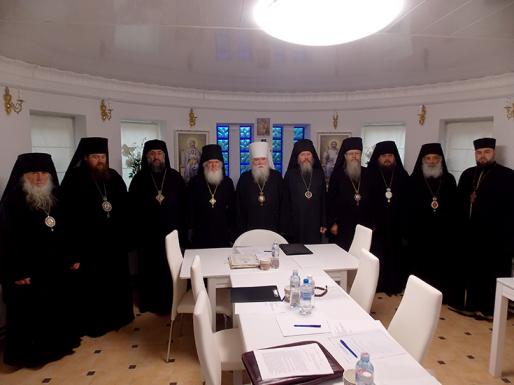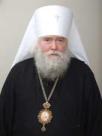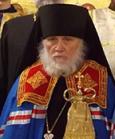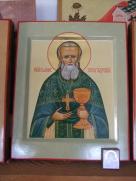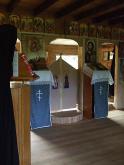Monday, October 30, 2017
Appeal to the faithful children of the Russian Orthodox Church
Having gathered in the God-saved city of Odessa, the Council of Bishops of the Russian Orthodox Church Abroad appeals to all Orthodox Christians whose conscience does not accept the modern heresies and innovations. These heresies are actively cultivated in our time by apostates and supporters of globalism.
In our sorrowful days, all the signs of the end times are painfully intensifying. They range from massive natural disasters and wars to the spread of apostasy and wickedness. We are experiencing the period of “casting away stones” [Eccl. 3:5. Russian: “Scattering”, transl. note]. Splits and divisions arise without any substantial motives. People who call themselves Christians unite, not around Christ, but around their personal, miniscule interests. Alternatively, people unite over “political super-tasks” which are distant from the Gospel, as is happening in so-called world Orthodoxy. In the Russian Federation, the official church has become an inseparable part of the ruling class and political elite, irrevocably entrenched in heresy, and spiritually fallen lower than in Soviet times. The Ukraine is given the goal to escape as far as possible from the Russian Federation, as well as, unfortunately, from historical Russia. Therefore, here the emphasis is primarily on Uniatism. We see how the heresies of ecumenism, syncretism (primarily in the form of the introduction of Latinism), Sergianism and modernism increasingly capture so-called world orthodoxy. There is no longer any hope for its recovery from this deadly disease. The more this illness grows in official orthodoxy, the greater the gap will be between it and those who seek to live by the Gospel and the teachings of the Holy Fathers. Both in Russia, the Ukraine, and, especially in Belarus, our Church finds itself in a very unfavourable position, if not in direct persecutions, then in mediated ones. In the West the old emigres have all but departed for the other world. People from the post-Soviet republics have come to take the place of the old emigration, radically changing its spirit. The Church Abroad has become completely different in spirit from what She was under Metropolitan Philaret, and even under Metropolitan Vitaly. A part of the ROCA, having joined with the Moscow Patriarchate, has long ago and irretrievably lost its identity with the former, historic Church Abroad. It has instead become infected with the ecumenical, Sergianist, and latin spirit introduced into the MP.
Thus, today we find ourselves in a new situation. It is the result of changes in the position of the Church that took place in the 20th century and the beginning of the current century. The true Church, which seeks to preserve the patristic traditions, has been significantly reduced in numbers. She has been completely isolated from any influence over political and social processes. In part, this frees the Church of direct responsibility for the massive, global apostasy of modern society. Indeed, we cannot fight mass apostasy, except by prayers and by protecting ourselves and our flock from this apostasy.
However, at the same time there is wavering and lack of unity within the Church itself, as well as in many groups close to it, which generally adhere to identical ecclesiological views. If we leave off consideration of personal factors such as pride and lust for power, this is largely explained by a recently-emerging variant of the destructive ecumenical heresy. It claims that in the last times the Church will lose its unity and will consist of separate groups that do not have prayerful and eucharistic communion with each other. This heresy enables the active fragmentation of the Church and the rapid extinction of individual microscopic “churches,” dioceses and communities resulting from such fragmentation (as a consequence of these divisions, today we see individual communities independent of everyone, which consist of only a few people). These groups do not possess the capability to maintain their own activities, not to mention transmitting their faith to the next generation. Such an ecclesiological position, dictated by this new heresy, is more akin to the sin of suicide than to a confession of faith. Today, madmen and apostates, instead of gathering together the flock of Christ, deliberately destroy the Church, organizing strife and division in Her. They even consider this their own special “podvig”. May Christ, who appeared to St. Peter of Alexandria in a torn robe, edify them. He answered St Peter’s question: “Who, o Creator, tore Thy tunic?” with the words: “Arius the madman tore Me apart, for he separated from Me the people whom I acquired by My blood.” The same is now being perpetrated by all sorts of insane schismatics who do not think about the Church, but only see themselves and their own interests.
One should never forget that the Orthodox Church is a Catholic Church. According to the definition of Alexei Khomiakov: “The church is called one, holy, catholic [catholic and universal] and apostolic, because she is one, and holy; because she belongs to the whole world, and not to any particular locality; because by her all mankind and all the earth, and not any particular nation or country, are sanctified; because her very essence consists in the agreement and unity of the spirit and life of all the members who acknowledge her, throughout the world; lastly, because in the writings and doctrines of the Apostles is contained all the fulness of her faith, her hope, and her love.” Of course, because of our small number, we cannot completely realize this in life, but according to Her spirit, the Church should be exactly like this. The opposite of catholicity is individualism, isolation and self-isolation on the one hand, and on the other – self-will and dictatorship. We must distance ourselves both from dictatorship, which is usually manifested in the form of “guruism” - an authoritarian pseudo-spiritual leadership and pseudo-eldership of the leaders of such groups – as well as from the self-isolation and false self-sufficiency which is peculiar to small sects.
Many continue to justify their divisions today with Decree No. 362. But its action, as well as the fact of its ever having been written, are conditioned solely by external circumstances that occurred during a certain historical period when there was a break in communication between the parts of the Church, both within and outside of the Soviet Union. However, today we see the exact opposite situation. Instead of the isolation found in the USSR, technical development makes it possible to communicate with people from all corners of the earth without interference, even without knowing each other’s language. Therefore, this Decree no longer applies to parts of the Russian Church isolated from communication, parts which no longer exist. Instead, this Decree extends to the entire Church, and is mandatory for all without exception.
Today, the following paragraphs of this Decree remain relevant:
2) (…) the diocesan bishop immediately enters into relations with the bishops of neighbouring dioceses for the purpose of organizing a higher instance of ecclesiastical authority for several dioceses in similar conditions (in the form either of a temporary Supreme Church government or a Metropolitan district, or anything else) [i.e. all bishops who have the same confession of faith must unite and organize for themselves the highest organ of ecclesiastical authority].
3) Care for the organization of a Supreme Church Authority is the objective of the entire group of dioceses which find themselves in the position indicated in paragraph 2, is the indispensable obligation of the senior bishop of such a group.
9) In case of the extreme disorganization of ecclesiastical life, when certain persons and parishes cease to recognize the authority of the diocesan bishop, the latter, finding himself in the position indicated in paragraphs 2 and 6, does not relinquish his episcopal powers, but forms deaneries and a diocese; he permits, where necessary, that the divine services be celebrated even in private homes and other places suited therefore, and severs ecclesiastical communion with the disobedient.
[i.e. those unwilling to fulfill paragraph 2 are disobedient to the Church and are the dissenters].
10) All measures taken in places in accordance with the present instruction, afterwards, in the event of the restoration of the central ecclesiastical authority, must be subject to the confirmation of the latter.
These are paragraphs of Decree No. 362 that we must fulfill if we consider ourselves Orthodox Christians.
Guided by this Decree, our Council of Bishops once again appeals to all scattered and fragmented Orthodox Christians with the plea to stop mutual hostility and, in accordance with paragraph 2 of Decree No. 362 (“the diocesan bishop immediately enters into relations with the bishops of neighbouring dioceses for the purpose of organizing a higher instance of ecclesiastical authority”), start discussions with one another. We must pray and make efforts that the present time of “scattering” is changed to a time of formation and gathering.
Now we are living through a period on which the continued existence of the Orthodox Russian Church depends. On the one hand, She is faced with the very imminent threat of union with the Latins, and a complete and final falling away from Holy Orthodoxy, similar to what happened in the 11th century with the Orthodox Roman Church. On the other hand, She is in danger of fragmentation and transformation into small sects that are at war with each other, all of which being threatened with imminent extinction in the near future. It is within our power to stop opposing God, Who acquired the Church through His own sufferings.
“That they all may be one; as Thou, Father, art in Me, and I in Thee, that they also may be one in Us: that the world may believe that Thou hast sent Me” (John 17:21). Let us not forget that these are not mere words. They are the prayer of the God-man.
Odessa, 13/26 October, 2017
Iveron Icon of the Mother of God
The President of the Council
Metropolitan Agafangel
Members of the Council
Archbishop George, Bishop Athanasius, Bishop Gregory, Bishop Roman, Bishop Kirill, Bishop Nikon, Bishop Nicholas, Bishop Anastassy, Bishop Anfim, Bishop John
Bishop Athanasius signed in proxy of Archbishop John
